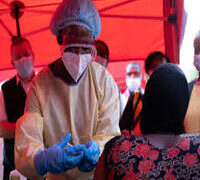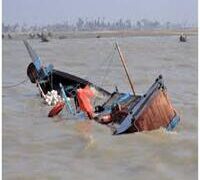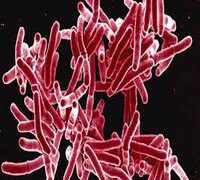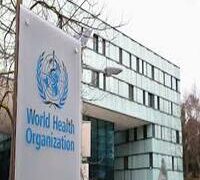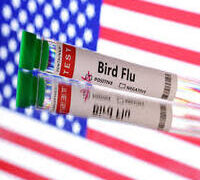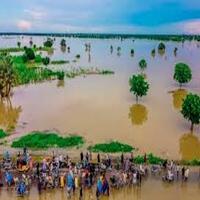Climate change could lead to a spike in malaria and cholera cases in the country if measures are not put in place to mitigate its impacts, medical experts have warned.
The experts said the rising temperatures or extreme weather conditions had created a more favourable atmosphere for these diseases to thrive, stressing the need for improved hygiene and sanitation among Nigerians.
The physicians noted that warmer conditions could shorten the mosquito life cycle, increase their population density, and expand their geographic range, thereby allowing more malaria cases.
The doctors cautioned that the interplay between climate change and these diseases underscores the urgent need for integrated public health and environmental strategies to mitigate risks and enhance resilience in vulnerable communities.
The Minister of Health and Social Welfare, Professor Ali Pate, recently said that climate change in Nigeria had reduced air quality and worsened air pollution, increasing the risk of infectious diseases such as cholera and malaria among citizens.
Pate spoke at the Future of Health Conference 2024, organised by Nigeria Health Watch, a non-profit focused on public health communications and advocacy.
The Minister emphasised that the phenomenon is worsening the spread of infectious diseases such as malaria and cholera, stressing that its adverse effect on the food system and the increasing malnutrition rate are causes for concern.
“This year, Nigeria has faced significant climate-related disruptions, including widespread flooding and droughts in various regions. These environmental shifts have brought with them a sharp increase in climate-sensitive diseases,” he stated.
More so, the Director-General of the Nigeria Centre for Disease Control and Prevention, Dr Jide Idris, who recently spoke in an update on the cholera epidemiological situation in Nigeria, expressed fears that the situation might be compounded as the rainy season intensifies.
He noted that the situation in Nigeria highlighted the direct connection between climate change and public health, noting that increased rainfall and flooding, driven by changing climate patterns, create ideal conditions for cholera transmission.
Some of the experts who spoke with PUNCH Healthwise warned that extreme weather events contribute to the spread of infectious diseases, emphasising the importance of access to adequate, clean water and healthy hygiene practices, including effective Water, sanitation, and hygiene measures to help curb this spread.
A Professor of Public Health at the University of Ilorin, Kwara State, Tanimola Akande, said climate change results in changes in environmental conditions, which include warm temperatures and heavy rainfall with flooding in some places.
Akande, an Epidemiologist said this could also cause drought and lack of clean water in some places, thereby creating an atmosphere for diseases like cholera and malaria to thrive.
He said, “The increased temperature allows for more growth of vibrio cholera and also increases the period of transmission of cholera.”
The physician noted that heavy rainfall and flooding also increase the breeding of mosquitoes and, therefore, increase the transmission of malaria too.
Akande emphasised that heavy rains can overwhelm and disrupt sanitation, which can lead to the spread of cholera, urging the government to mitigate the consequences of climate change.
“The government should address factors that lead to climate change and mitigate the consequences of climate change. The government should promote the use of renewable energy and prevent excessive burning of fossil fuels.
“Nigeria signed some international agreements to address climate change and should come up with policies that will make implementation and compliance with the agreements feasible,” he said.
On the part of the masses, he said, “Individuals should also be educated on activities that can promote climate change and the spread of diseases.









